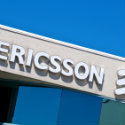Ericsson Must Hit M&A Trail to Boss B/OSS – Analyst
The Swedish vendor must quickly acquire B/OSS capabilities in several key areas if it is to thrive in this market, says a Heavy Reading analyst.

Ericsson needs to bulk up its BSS and OSS (B/OSS) business through takeover activity if it is serious about the opportunity, according to a leading analyst.
The Swedish vendor earlier this week insisted that B/OSS remained highly "strategic" both to Ericsson and customers when challenged on its decision to retain the loss-making unit.
CEO Börje Ekholm told analysts he was exploring "options" for the company's media and cloud hardware assets, hinting at a likely sale of those businesses, but remains committed to other parts of the business, including the B/OSS division. (See Ericsson Tightens Focus, Warns of $1.7B Q1 Hit.)
But if it really thinks B/OSS is "strategic," Ericsson AB (Nasdaq: ERIC) needs to start buying some innovative companies in this market, says James Crawshaw, a senior analyst at the Heavy Reading market research business.
"What kind of companies should they buy?" posited Crawshaw in a comment on the Light Reading website. "Something to help operators manage inventory in a dynamic environment like NFV (the legacy systems can't cope), something to help operators provide a cool consumer-facing front end to the BSS to enable self care, and something to help increase the automation of network management." (See Ekholm's Vision of Slimmer Ericsson Lacks Detail & Dazzle.)
Without such capabilities, clearly, Ericsson risks losing out to rivals eyeing fresh opportunities in this market. Those include Chinese equipment giant and nemesis Huawei Technologies Co. Ltd. , which already appears to have stolen market share from Ericsson in the mainstream networks business.
Yet takeovers may be the last thing on Ekholm's mind while Ericsson retrenches. The company aims to double its operating margin to about 12% in future, but it is getting battered by restructuring costs and impairment charges on unprofitable operations. It also appears to have lost out on some major contracts in the last few months.
Cash flow from operating activities slumped about a third, to 14 billion Swedish kronor ($1.6 billion), in 2016, while net income plummeted 86%, to just SEK1.9 billion ($210 million).
Want to know more about cloud services? Check out our dedicated cloud services content channel here on Light Reading.
Ericsson would also need to weigh any takeover opportunity very carefully indeed in the current circumstances. It has built up its media business over the last few years largely through takeover activity, and yet this has not translated into sales success. Restated financials published a few weeks ago showed that media revenues fell 7% in 2016, to SEK9.7 billion ($1.1 billion), while operating losses doubled to SEK2.4 billion ($270 million).
Previously reported as "support solutions," the B/OSS unit generated about SEK12.5 billion ($1.4 billion) in revenues for Ericsson last year, 17% less than in 2015 (the decline would have been shallower but for unfavorable foreign exchange movements).
Ericsson blamed the setbacks on "lower sales of legacy products and lower software sales in digital transformation projects where sales are mainly project milestone based."
Ekholm says an immediate priority is to re-establish profitability at the B/OSS business. The next step will be a portfolio review that could lead to the jettisoning of some legacy B/OSS activities. And there is to be more integration of product with systems integration capabilities to simplify internal procedures.
"It is a combination of those two that will restore profitability," Ekholm told analysts during a call earlier this week. "We need to reinvest in the parts of the business where there is a strong product offering today."
— Iain Morris, 

 , News Editor, Light Reading
, News Editor, Light Reading
About the Author(s)
You May Also Like




.jpg?width=300&auto=webp&quality=80&disable=upscale)







